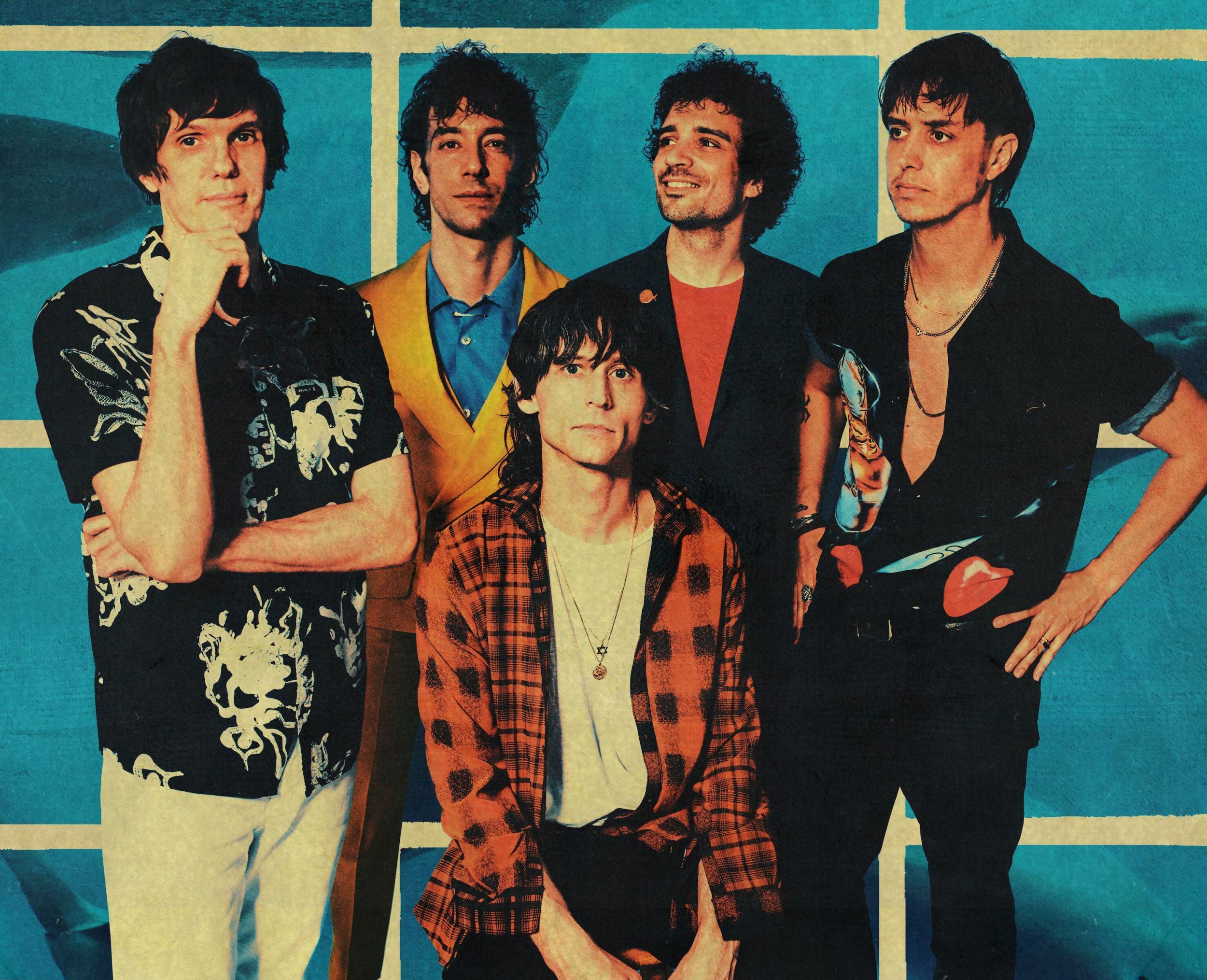The Strokes review, The New Abnormal: Charged with a tense ennui fit for the present lockdown
Band mark their return on this album stacked with rolling, streetwise grooves, boldly graffitied onto the chipped paintwork of Eighties New York City

Your support helps us to tell the story
From reproductive rights to climate change to Big Tech, The Independent is on the ground when the story is developing. Whether it's investigating the financials of Elon Musk's pro-Trump PAC or producing our latest documentary, 'The A Word', which shines a light on the American women fighting for reproductive rights, we know how important it is to parse out the facts from the messaging.
At such a critical moment in US history, we need reporters on the ground. Your donation allows us to keep sending journalists to speak to both sides of the story.
The Independent is trusted by Americans across the entire political spectrum. And unlike many other quality news outlets, we choose not to lock Americans out of our reporting and analysis with paywalls. We believe quality journalism should be available to everyone, paid for by those who can afford it.
Your support makes all the difference.“The last great rock stars.” That’s how one contemporary described The Strokes to Lizzy Goodman, author of Meet Me in the Bathroom, the giddy oral history of New York’s rock revival in the first decade of the new millennium.
The quintet of affluent white boys who hooked up at exclusive schools shouldn’t have been cool. Frontman Julian Casablancas’s dad had founded the Elite model agency, while his mum was Miss Denmark, 1965. And they were brandishing boring old guitars after grunge had strummed the things into dreary oblivion.
But the band had a dishevelled charisma, sleepy heat and a great line in itchy-scratchy riffs that energised a generation Goodman describes as: “Chasing a feeling of rebellion, of possibility, of promise, of chaos … something that called to Charlie Parker and Bob Dylan and Madonna before us.”
There were two great, zeitgeisty albums (2001’s Is This It and 2003’s Room on Fire), then an OK effort before the band lost wattage as they succumbed to rock cliches of addiction and bickering. They released two more forgettable albums and an EP and headed off into different projects; Casablancas wanted to make more experimental, synthy sounds. With his other band The Voidz, he expressed the desire to move on, singing: “I don’t wanna be a puppet that the ghost of my young self still controls.”
But in 2017, rumours began circulating that the band were in touch with producer Rick Rubin: the grizzly bearded founder of Def Jam records, best known for helping artists reboot their sold-out authenticity. And the result is a sixth album that – if not a return to the reckless voltage of their early days – finds them with a fresh spring in their strings.
The New Abnormal – a spookily prophetic title – is stacked with rolling, streetwise grooves, boldly graffitied onto the chipped paintwork of New York City past. Their choice of Jean-Michel Basquiat’s 1984 painting Bird on Money, a bright, busy homage to Charlie Parker, is a perfect visual reflection of the sound.
Songs such as “The Adults are Talking” (charged with a tense ennui that proves a perfect fit for the present lockdown), “At the Door” (less effective) and new single “Brooklyn Bridge to Chorus” build from Etch-a-Sketch synths. His voice dry and groggy with self-awareness, the perma-offhand Casablancas delivers a catchy chorus: “I want new friends, but they don’t want me/ They’re making plans while I watch TV/ Thought it was you, but maybe it’s me/ I want new friends, but they don’t want me/ And the Eighties song, yeah, how did it go?”
Those Eighties songs are – of course – scattered throughout the record as they have been throughout The Strokes’ career. Look out for nods to The Bangles, Talking Heads, The Psychedelic Furs, Blondie (who also used Basquiat for cover art) and Billy Idol, whose “Dancing with Myself” is repurposed (with credit) against the pogo-bass of “Bad Decisions”. Kicking off with a garage drum beat, “Why are Sundays So Depressing” tilts and tinkers with the riff from Marvin Gaye’s “Heard it Through the Grapevine” against a throbbing post-punk bass, although loses itself in some oddball sound effects and a noodling guitar solo and doesn’t deliver the development it promises.
Casablancas makes good use of his airy falsetto against the spacious, Afrobeat-indebted guitar pings of “Summer” and the carousel organ of “Selfless”. Most moving is the elegiac closer: “Ode to the Mets”, which slowly turns up the gas under a simple synth motif as the band seem to look back on their lost years. “I was just bored/ Playing the guitar/ Learned all of your tricks/ It wasn’t too hard,” sighs the 41-year-old frontman. “Gone now are the old times/ Forgotten, time to hold the railing/ The Rubik’s Cube isn’t solving for us/ Old friends, now forgotten/ The old ways at the bottom/ The ocean now has swallowed/ The only thing that’s left is us/ So pardon, the silence that you’re hearing/ Is turning into a deafening shameful roar.”
Enjoy unlimited access to 100 million ad-free songs and podcasts with Amazon Music
Sign up now for a 4 month free trial (3 months for non-Prime members)
Enjoy unlimited access to 100 million ad-free songs and podcasts with Amazon Music
Sign up now for a 4 month free trial (3 months for non-Prime members)
It all makes me wonder if it was Lizzy Goodman’s book – set to become a movie, post-pandemic – that inspired the band to reflect and recharge. “Ode to the Mets” would make a terrific soundtrack to the closing credits.
Join our commenting forum
Join thought-provoking conversations, follow other Independent readers and see their replies
Comments